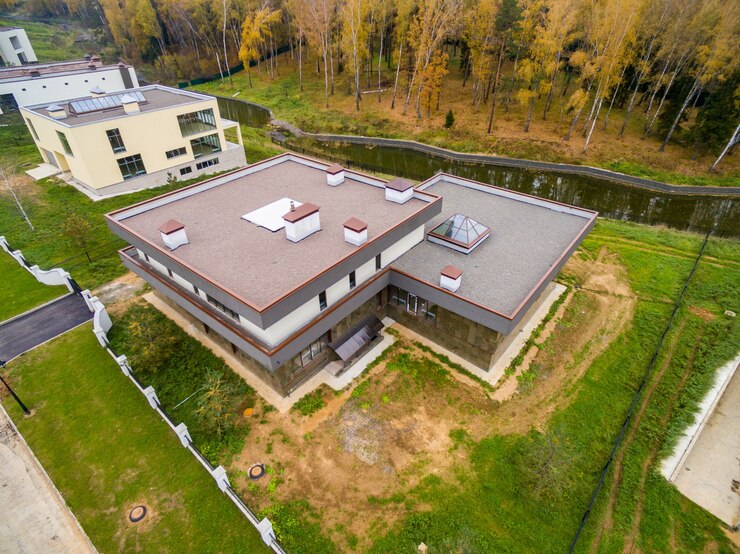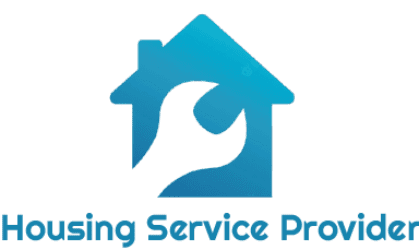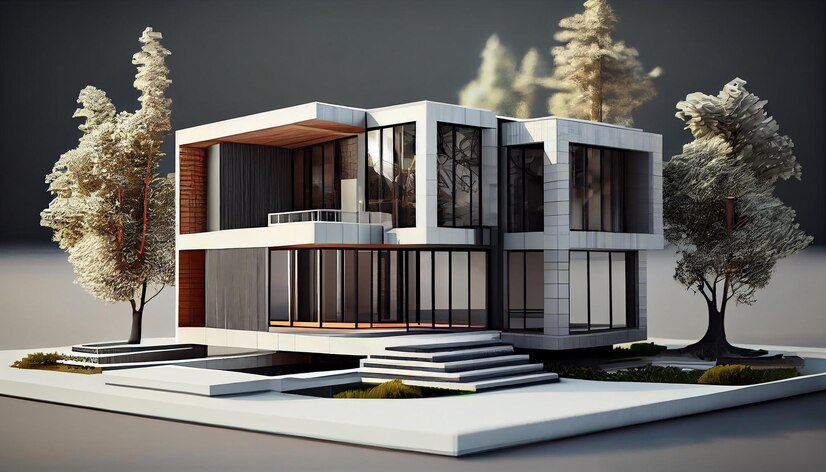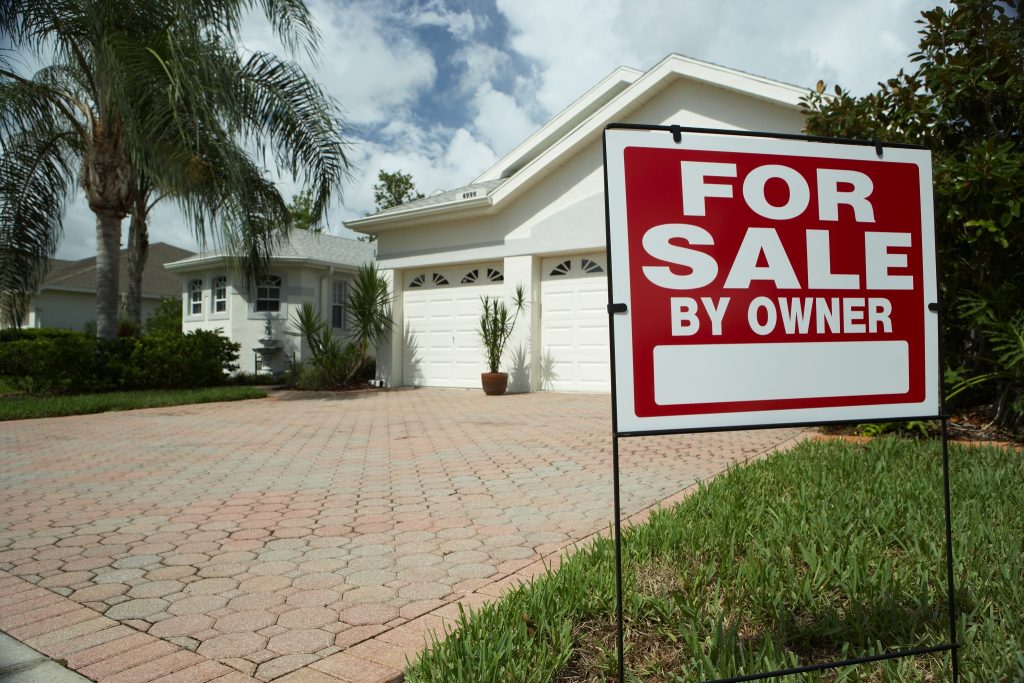To buy a modular home in minnesota, research local modular home builders, compare prices and designs, and choose a reputable builder that meets your needs and budget. Modular homes are pre-built in a factory and then transported and assembled on-site, providing a faster construction process compared to traditional stick-built homes.
In recent years, the popularity of modular homes has grown due to their affordability, energy efficiency, and customizable designs. Additionally, modular homes in minnesota must meet the state’s building codes and be inspected at various stages of construction to ensure quality and safety.
Therefore, it is essential to work with a trusted and experienced modular home builder to navigate the process smoothly.

Understanding The Modular Home Buying Process
The process of purchasing a modular home in minnesota may seem daunting, but with the right understanding, it can be simplified. From finding the right floor plan to navigating the permitting process, this guide will help you navigate the modular home buying journey in minnesota.
When it comes to buying a modular home in minnesota, understanding the process is crucial. From selecting the right location and modular home builder to figuring out financing options and obtaining necessary permits and inspections, there are several factors to consider.
In this section, we will explore each aspect of the modular home buying process in detail.
Factors To Consider When Buying A Modular Home In Minnesota:
- Budget: Determine your budget and evaluate your financial situation before diving into the modular home buying process. Set a realistic budget that covers the cost of the home, land, permits, and other expenses.
- Size and layout: Think about your living requirements and choose a modular home size and layout that will accommodate your needs. Consider factors like the number of bedrooms and bathrooms, common living areas, and any specific features you desire.
- Energy efficiency: Look for modular homes that are environmentally friendly and designed to be energy efficient. This can help you save on utility bills in the long run and contribute to a sustainable lifestyle.
- Customization options: Explore the customization options offered by different modular home builders. Think about the design, finishes, and materials that align with your style and preferences.
- Resale value: Consider the potential resale value of the modular home you choose. Opt for reputable builders and designs that have high-quality construction and finishes to ensure your investment holds its value over time.
Choosing The Right Location For Your Modular Home:
- Local zoning laws: Research local zoning laws and regulations to understand any specific requirements for placing a modular home in your desired location. Check if there are any restrictions regarding size, design, or placement.
- Amenities and lifestyle: Consider the amenities and lifestyle factors that are important to you. Think about proximity to schools, healthcare facilities, shopping centers, and recreational areas when selecting a location for your modular home.
- Climate considerations: Take into account the climate conditions in minnesota when choosing the location for your modular home. Ensure that the design and materials of the home can withstand the local weather patterns and provide suitable insulation.
Selecting The Right Modular Home Builder:
- Experience and reputation: Research different modular home builders and evaluate their experience and reputation in the industry. Look for customer reviews and testimonials to gain insights into the quality of their work.
- Customization and design options: Review the customization and design options offered by different builders. Choose a builder that can cater to your specific needs and preferences.
- Warranty and support: Inquire about the warranty and after-sales support provided by the modular home builder. Understanding their policies and commitment to customer satisfaction is essential.
Financing Options For Purchasing A Modular Home:
- Mortgage loans: Explore mortgage loan options specifically designed for modular homes. Consult with lenders who specialize in modular home financing to understand the terms and conditions.
- Down payment: Determine the down payment amount required by lenders, and ensure you have the necessary funds available. Plan your budget accordingly to cover this initial expense.
- Interest rates and terms: Compare interest rates and loan terms from different lenders to find the most favorable financing option for your modular home purchase.
The Importance Of Obtaining Building Permits And Inspections:
- Building permits: Familiarize yourself with the building permit requirements in minnesota. Acquire all the necessary permits before starting the construction process to ensure compliance with local regulations.
- Inspections: Schedule inspections at different stages of the modular home construction process. These inspections help ensure that the home is being built according to code and meets quality standards.
By carefully considering the factors outlined above and following the modular home buying process, you can make a well-informed decision when purchasing a modular home in minnesota. Remember to research, ask questions, and work with reputable professionals every step of the way to achieve a successful outcome.
Customizing Your Modular Home
Learn how to customize your modular home in minnesota with these simple tips. From choosing the perfect floor plan to selecting personalized finishes, this guide will help you navigate the process of buying and customizing your dream modular home.
When it comes to buying a modular home in minnesota, one of the biggest advantages is the ability to customize and personalize your space. From selecting the right floor plan to choosing desired features and upgrades, the options are endless.
This section will guide you through the process of customizing your modular home to make it truly your own.
Selecting The Right Floor Plan For Your Needs
- Consider the size and layout of your family: Determine the number of bedrooms, bathrooms, and common areas that will comfortably accommodate your family members.
- Evaluate your lifestyle: Determine the need for open-concept living spaces, home offices, or additional storage areas.
- Assess your future needs: Plan for potential changes in your family’s size and requirements, such as the need for an extra bedroom or a flexible living space.
Choosing The Desired Modular Home Features And Upgrades
- Kitchen and bathroom upgrades: Consider options like granite countertops, high-quality appliances, and modern fixtures to enhance the functionality and aesthetics of these spaces.
- Flooring and cabinetry options: Explore different flooring materials and cabinetry styles that align with your personal taste and desired level of durability.
- Technology and smart home features: Incorporate convenience into your modular home with options like smart thermostats, security systems, and built-in audio systems.
Personalizing The Interior And Exterior Design Of Your Modular Home
- Paint colors and finishes: Choose paint colors that reflect your personal style and create a cohesive look throughout your home. Consider different finishes such as matte, satin, or gloss for various surfaces.
- Exterior siding and roofing choices: Select from a range of materials and colors that complement the architectural style of your modular home and suit the local climate.
- Window styles and treatments: Customize your windows with different styles and finishes. Enhance privacy and add a touch of elegance with carefully chosen window treatments.
Exploring Energy-Efficient Options For Your Modular Home
- Energy-saving appliances: Opt for energy star-rated appliances that consume less energy while still delivering top-notch performance.
- Insulation and ventilation: Ensure proper insulation and ventilation to maintain comfortable living conditions and reduce energy consumption.
- Solar panel installation: Consider harnessing solar energy to power your modular home and reduce your carbon footprint.
Understanding The Timeline For Customization And Delivery
- Consultation and design phase: Collaborate with the modular home company to finalize your floor plan, features, and finishes. This phase typically takes a few weeks.
- Production and construction: Once the design is approved, the modular home is constructed off-site while you prepare the necessary site work. This process usually takes 12-16 weeks.
- Delivery and assembly: After the modular home is completed, it will be transported to your site and assembled within a few days, depending on the complexity and size of the home.
By customizing your modular home in minnesota, you can create a unique living space that suits your needs, reflects your personal style, and embraces energy efficiency. Remember to work closely with professionals to ensure a seamless process from start to finish.
Navigating The Legal Aspect Of Buying A Modular Home
Discover the legal complexities that come with buying a modular home in minnesota. Uncover the essential steps to navigate the process smoothly and ensure a hassle-free purchase.
Understanding The Laws And Regulations Related To Modular Homes In Minnesota:
- Know the building codes: Familiarize yourself with the specific building codes and regulations governing modular homes in minnesota. These codes ensure that the construction and installation of your modular home meet safety and quality standards.
- Research local zoning laws: Each municipality may have its own zoning regulations that could impact where you can place your modular home. It is essential to understand these regulations and ensure that your chosen location is compliant.
- Consult with professionals: Seek advice from professionals, such as real estate attorneys or local housing authorities, to ensure you have a comprehensive understanding of the legal requirements for purchasing and owning a modular home in minnesota.
Reviewing The Contract And Warranty Details With The Builder:
- Carefully review the contract: Thoroughly read and understand the terms and conditions of the contract before signing anything. Pay close attention to details like the scope of work, completion timeline, payment schedule, and any potential penalties or cancellation clauses.
- Clarify warranty specifics: Ask the builder about the warranty coverage for your modular home. Understand what aspects of the home are covered, the duration of coverage, and any limitations or exclusions that may apply. This will help you assess the potential costs and responsibilities you may have after the home is delivered.
- Seek legal advice if needed: If you have any concerns or questions about the contract or warranty, consider seeking professional legal advice. An attorney experienced in real estate or construction law can provide invaluable guidance and ensure your rights are protected.
Conducting A Thorough Inspection Before Finalizing The Purchase:
- Hire a licensed inspector: Engage a qualified home inspector, preferably one experienced in modular homes, to thoroughly evaluate the property before finalizing the purchase. They will check the structural integrity, plumbing, electrical systems, and overall condition of the home.
- Review the inspection report: Carefully review the inspector’s findings and recommendations. If any issues are identified, discuss them with the builder and negotiate repairs or pricing adjustments before proceeding.
- Consider requesting third-party certifications: In addition to a general inspection, you may want to inquire about any third-party certifications that the modular home may have, such as energy efficiency or sustainability ratings. These certifications can add value and peace of mind to your purchase.
Securing Proper Insurance Coverage For Your Modular Home:
- Consult with insurance providers: Speak to insurance providers who specialize in modular homes and understand the unique coverage requirements. They can guide you through the process of obtaining adequate homeowners’ insurance to protect your investment.
- Determine comprehensive coverage: Ensure that your insurance policy covers not only the modular home itself but also any attached structures and personal belongings. Be mindful of potential exclusions or limitations that may apply to modular homes.
- Revisit and update your policy regularly: As you add improvements, upgrades, or make changes to your modular home, it’s crucial to update your insurance policy accordingly. Keeping your coverage current will offer greater protection and peace of mind.
Evaluating The Resale Value And Potential Appreciation Of Your Modular Home:
- Research the local housing market: Gain insight into the current real estate market trends in your area. Analyze recent sales data for modular homes specifically to understand their resale potential.
- Consider location and amenities: Evaluate the desirability of the location and the amenities offered in the community where your modular home is situated. These factors can significantly influence the appreciation potential of your property.
- Consult a real estate professional: Seek guidance from a local real estate agent who has experience working with modular homes. They can provide valuable insights and assist you in assessing the resale value and appreciation prospects for your modular home.
Remember, understanding the legal aspects of buying a modular home in minnesota, reviewing contracts and warranties, conducting thorough inspections, securing proper insurance coverage, and evaluating the resale value will empower you to make informed decisions throughout the entire buying process.
By adhering to these critical steps, you can ensure a successful and legally sound purchase of your modular home in minnesota.
Preparation For Moving Into Your Modular Home
Moving into your modular home in minnesota requires careful preparation. From choosing the right floor plan to coordinating logistics, this guide will help you navigate the process smoothly.
Moving into your modular home in minnesota is an exciting milestone. After careful planning and the construction process, it’s time to prepare for the big move. This section will guide you through the necessary steps to ensure a smooth transition into your new space.
Let’s dive right in!
Coordinating The Delivery And Installation Of Your Modular Home:
Coordinating the delivery and installation of your modular home requires careful consideration and attention to detail. Here are the key points to keep in mind:
- Schedule a date for the delivery and installation of your modular home with the manufacturer or builder.
- Ensure that the site is ready and meets all the necessary requirements for installation.
- Make sure there is enough space for the delivery trucks to access the site and unload the modules.
- Coordinate with the manufacturer or builder to ensure that everything is in order for the installation process.
- Be present during the delivery and installation to address any questions or concerns.
Setting Up Utilities And Other Essential Services:
Setting up utilities and other essential services is crucial to make your modular home fully functional. Here’s what you need to do:
- Contact the relevant utility companies to establish service connections for water, electricity, and gas.
- Consider setting up cable, internet, and phone services to stay connected.
- Plan for waste management services, such as trash pickup.
- Arrange for any additional services you may require, such as security systems or home monitoring.
Completing Any Necessary Landscaping Or Site Work:
Before moving into your modular home, it’s essential to complete any necessary landscaping or site work. Consider the following:
- Clear the site of any debris or construction materials that may impede the safety or aesthetics of your new home.
- Level the ground and prepare the foundation if required.
- Consider landscaping options, such as planting trees, shrubs, or creating a garden.
- Install walkways, driveways, or pathways to enhance accessibility and curb appeal.
Moving In And Getting Settled Into Your New Modular Home:
Moving in and getting settled into your new modular home is an exciting time. Here are some tips to help you make the transition smoother:
- Plan the logistics of the move, including hiring professional movers or enlisting the help of friends and family.
- Unpack and organize your belongings systematically to minimize stress and streamline the process.
- Take the time to familiarize yourself with the layout and features of your new home.
- Set up your furniture, personal items, and decorations to reflect your style and create a welcoming ambiance.
- Explore your new neighborhood and get to know your neighbors.
Maintaining And Caring For Your Modular Home For Long-Term Enjoyment:
To ensure long-term enjoyment of your modular home, regular maintenance and care are crucial. Consider these maintenance tips:
- Follow the manufacturer’s guidelines for cleaning and maintaining your modular home.
- Regularly inspect and maintain your hvac system, plumbing, and electrical systems.
- Stay proactive in identifying and addressing any potential issues, such as leaks or structural concerns.
- Keep your modular home clean and tidy to maintain its aesthetics and functionality.
- Stay updated on any warranty guidelines and arrange for necessary repairs or replacements promptly.
Now that you are prepared to move into your modular home in minnesota, it’s time to start the next chapter of your life. Enjoy the process of settling in and creating memories in your new home. Cheers to a bright future ahead!
Frequently Asked Questions On How To Buy Modular Home In Minnesota
How Much Does A Modular Home Cost In Minnesota?
The cost of a modular home in minnesota varies depending on factors such as size, location, design, and customization options. However, on average, you can expect to pay between $80 and $150 per square foot for a high-quality modular home in this area.
Are Modular Homes In Minnesota Energy-Efficient?
Yes, modular homes in minnesota are designed with energy efficiency in mind. They are built with high-quality insulation, energy-efficient windows, and other features that help reduce energy consumption. This not only helps the environment but also saves homeowners money on their energy bills.
How Long Does It Take To Build A Modular Home In Minnesota?
The construction time for a modular home in minnesota is typically shorter than that of a traditional stick-built home. On average, the building process can take around 6-8 weeks, but this can vary depending on the complexity of the design and the weather conditions during construction.
Can I Customize The Design Of A Modular Home In Minnesota?
Yes, modular homes in minnesota can be customized to suit your individual preferences and needs. You can choose from a variety of floor plans, finishes, fixtures, and other options to create a home that reflects your personal style and meets your specific requirements.
Can I Finance The Purchase Of A Modular Home In Minnesota?
Yes, financing options are available for purchasing a modular home in minnesota. You can apply for a mortgage loan or seek financing through modular home manufacturers or local banks. It is advisable to compare rates and terms from different lenders to find the best financing option for your situation.
Conclusion
To wrap up, buying a modular home in minnesota can be a rewarding experience. By following the steps outlined in this guide, you can ensure a smooth and successful purchase. Start by determining your budget and researching the different modular home options available.
Next, find a reputable modular home builder in the area and visit their model homes to get a better idea of the style and quality of their work. Obtain financing and secure any necessary permits before finalizing your purchase. Lastly, don’t forget to consider customization options and additional features that can enhance your modular home’s functionality and appeal.
With careful planning and attention to detail, you can find the perfect modular home in minnesota that meets your needs and budget. Happy home shopping!




